op-ed
Filter by...
-
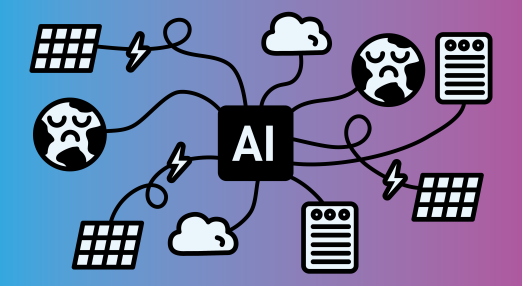
The mirage of EU techno-solutionism to the climate crisis
Technology, as shaped by today’s market-driven priorities, carries immense hidden environmental and social costs. The tech sector is one of the fastest-growing contributors to waste and energy consumption. In 2021, it was responsible for two-to-three percent of global carbon emissions — on par with aviation.
Read more
-

Why Ireland is the Achilles heel of the EU’s fightback against Big Tech
The recent controversies surrounding Big Tech moguls Elon Musk and Mark Zuckerberg — who are defying content moderation norms and accusing the EU of censorship — should come as no surprise to those following the tech industry closely. For over a decade, Big Tech has approached the EU's robust data protection framework as little more than a compliance checkbox, rather than a set of binding legal obligations.
Read more
-

It’s time for a heart-to-heart about the EU’s surveillance agenda
The EU prides itself on its worldwide norm-setting influence in the fields of data protection and artificial intelligence regulation. Still, it is not always for the best when it comes to digital state surveillance. Privacy is safety. As we approach the European elections in June, it’s time to discuss the EU's role in shaping how technologies are developed and used.
Read more
-

Privacy is not for sale: Meta must stop charging for people’s right to privacy
Ahead of a crucial opinion by the European Data Protection Board (EDPB) – a grouping of the EU’s chief privacy regulators - on Meta’s plan to charge for privacy, the European Commission has opened an investigation that we hope will cast light on the unlawfulness of Meta’s so-called ‘Pay or Okay’ model, which has become the ‘talk of the town’ in Brussels.
Read more
-
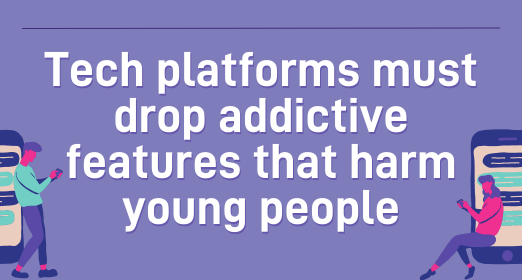
Tech platforms must drop addictive features that harm young people
Social media companies construct their platforms in ways that make them addictive. Algorithms show individuals things that they think will keep them hooked for longer.
Read more
-
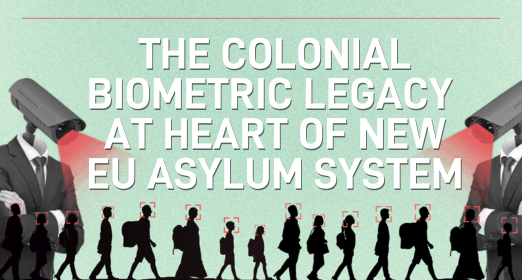
The colonial biometric legacy at heart of new EU asylum system
On Wednesday (10 April), the EU is set to vote on a new set of asylum and migration reforms. Among the many controversial changes proposed in the new migration pact, one went almost unnoticed — a seemingly innocent reform of the EU's asylum database, EURODAC. Although framed as purely technical adjustments, the reality is far more malicious. The changes to EURODAC will massively exacerbate violence against people on the move.
Read more
-

Will the Brussels spyware scandal finally convince the EU to act?
In February, Brussels was rocked by reports of phone hacking and spyware attacks on members of the European Parliament’s defence and security committee. Such intrusions are a huge threat to EU democracy — interfering with decision-making and allowing obstructive disruptions to public debate. Three weeks on, nothing seems to have changed with the EU’s approach to spyware.
Read more
-
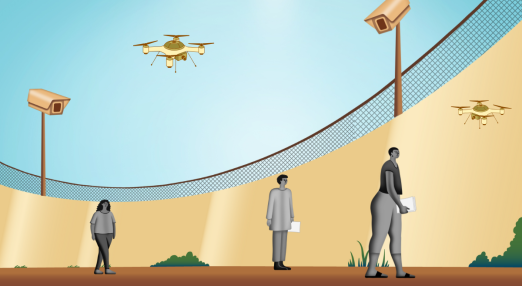
Unchecked AI will lead us to a police state
Across Europe, police, migration and security authorities are seeking to develop and use AI in increasing contexts. From the planned use of AI-based video surveillance at the 2024 Paris Olympics, to the millions of EU funds invested in AI based surveillance at Europe’s borders, AI systems are more and more part of the state surveillance infrastructure.
Read more
-
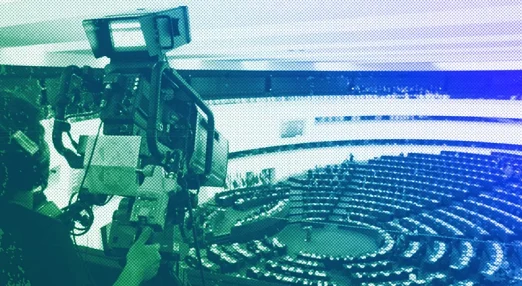
Will the European Parliament walk the talk and protect journalists?
In a democratic society, where we rely on journalists to act as public watchdogs, we cannot have them worried about becoming a target of government-sanctioned spying.
Read more
-

Are we about to lose the last pillar of our digital security?
Breaking encryption and criminalising its use will not resolve the deep societal issues we are facing. Instead, governments should protect and promote the very tool that ensures our digital security.
Read more
-

Encryption protects our rights, privacy is not a crime
End-to-end encryption is currently under attack by prosecutors and legislators in France, the EU, the UK and the US. We are asked to choose, as a society: do we accept a future in which our private mail and communication can be intercepted anytime, in which we are treated as potential suspects?
Read more
-

Sex, religion and race are advertising taboos, except for power-hungry politicians
As the GDPR turns five, certain EU lawmakers want to rip out some of its protections, so they can use our deeply personal information to tailor political ads and tip political elections and campaigns in their favour.
Read more
